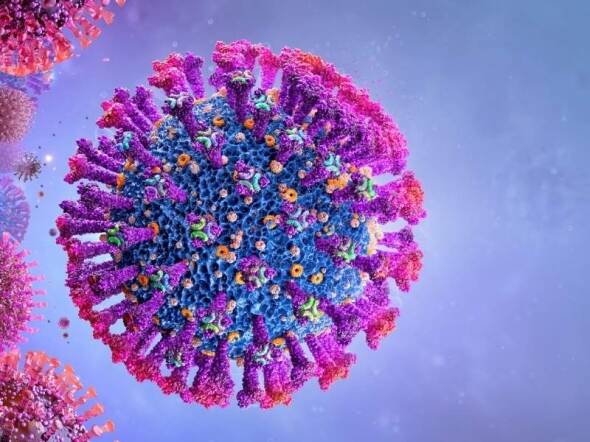Covid infection does not affect a woman’s egg pool, a study conducted by IVIRMA researchers in Spain recently found.
In May and June 2020, researchers at IVI Madrid measured Anti Mullerian Hormone (AMH) levels in 46 infertility patients who had recovered from Covid to see whether the virus had compromised their ovarian reserve.
Ovarian reserve, or the amount of eggs a woman has in her ovaries, is best measured by her levels of AMH, a hormone expressed by tiny cells growing on her egg-containing follicles.
The study participants were split into two groups: one group of older women, averaging 38 years old, and another group of younger women, averaging 34 years old. After measuring AMH levels in both groups of women, and comparing those levels to AMH levels taken from the same women no more than six months prior, the researchers found no significant difference in ovarian reserve in either group.
“We were concerned about how Covid infection could affect the ovarian reserve of our patients, but fortunately our study did not find a significant effect,” said Dr. Maria Cruz Palomino, who led the study team at IVI Madrid.
Researchers at IVIRMA and elsewhere are just beginning to unravel what effect Covid infection may have on fertility. While the virus’ harmful effect on pregnancy has been well documented, its role in fertility is still ripe for scientific inquiry.
Because a woman’s reproductive organs – including her ovaries and uterus, as well as the fetus-derived placenta – all, contain ACE2 receptors, which can act as a point of entry for the Covid virus into the body, scientists have been trying to understand the relationship between ACE2 and Covid in the context of female fertility.
While Dr. Palomino’s study did not look into whether the Covid virus colonized the ovaries of the study participants, or what role it played in the event of ovarian entry, the fact that ovarian reserve remained unchanged following Covid infection is an encouraging finding.
“These findings provide great reassurance to patients and providers regarding Covid-19’s impact on female fertility. Its impact on fertility and pregnancy is being intensely investigated by IVIRMA. The fact that ovarian reserve is not compromised is very encouraging,” said RMA reproductive endocrinologist, Dr. Jason Franasiak.
